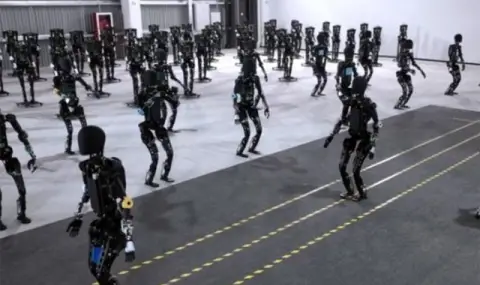Launched in February 2023, Agibot, a Chinese robotics startup, caused quite a stir in the industry by announcing the mass production of general-purpose humanoid robots. According to Chinese media, the company will deliver about 1,000 robots by the end of the year.
Startup Agibot, known locally as Zhiyuan Robotics, posted some footage of its production facility on its official website, which has reportedly already produced 962 humanoid robots. Along with this, Agibot posted a short video showing the various stages of robot production at the Lingang Fengxian factory in Shanghai.
The company's production line, among other things, uses its own humanoid robots to help people perform tasks such as arranging tools on shelves and testing components. The startup has also created a so-called “data factory“ to train robots to perform various tasks, such as folding clothes, cleaning and washing clothes.
Various companies around the world are developing humanoid robots. Among them is Tesla, owned by Elon Musk, whose main business is the production of electric vehicles. In July, the billionaire said that truly useful humanoid robots will begin to be used internally by Tesla next year, with mass production scheduled for 2026.
The start of mass production of Agibot robots shows that the Chinese company is ahead of Tesla, but the gap is unlikely to be significant. According to analysts, this also shows the impressive pace of development of the robotics market, due to which humanoid robots have actually turned from laboratory prototypes into tangible products.
The report also says that the hardware of robots has reached a noticeable level of standardization, so humanoid robots from different companies do not differ much from each other in this regard. However, American companies such as Tesla and Nvidia have certain advantages in areas such as precise manipulation of the upper limbs and operational capabilities, as well as in the production of high-performance chips and cloud computing resources. At the same time, Chinese companies are more successful in management.
